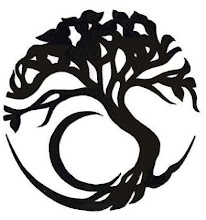Sins of the Past...Hope for the Future
Since my comics are coming in monthly installments now, I find I'm often in search around the house for something to read. Thus I tapped into my Wizard back issues. I know, I know, it's Wizard, but that's not the "sin" I refer to in the title of this post.
In my search through the gigantic stack of Wizards (I've been getting it since issue #9 and they are currently at 183), I decided to start at the beginning with #9. What a difference in the style of the magazine compared to now as well as the difference in what was going on in the industry! There were actual in-depth articles with creators and comic coverage wasn't exclusive to Marvel and DC. However the differences, or more so, the change in Wizard magazine over the years will be reserved for a future series of posts.
The point? I came across an editorial letter written by Patrick Daniel O'Neill, a scan of which is shown below on the left (click for larger image) along with a follow-up from issue #11 (on the right).

Now you have to remember, this is 1992, 14 frigging years ago! The problem that the comic book industry had then is still very much present today: that of an aging and declining fanbase. In fact I'd hazard to say it's worse today then now because when I was a kid, at least you could get comics at the grocery store; they were more accesible. Today? The only comics you'll see at Sobey's or Shoppers Drug Mart are in the newspapers and even those are on the way out.
It's pretty irresponsible of the main comic makers to keep pandering to the same fanbase with no real initiative to grow that fanbase. I mean honestly, who are the trade paperbacks with DVD-like extras or the Absolute Editions of everything for, except for those people who already had the single issues anyways? You think the average consumer will drop $100 for a comic? I don't. You think a kid has enough money to follow the main Marvel universe these days where you have to get like 12 different comics to understand what's going on in Spider-man? I don't.
A lot of this stuff has been said before and obviously the problem has been long-lasting. It just goes to show the laziness of publishers and the lack of creativity in getting their product out into the mainstream. Not to mention the unwillingness to take short-term losses for future gains. Business is risk - deal with it.
That being said, it's nice to see a new initiative from DC where they have budgeted $250,000 to market a new line of comics and original graphic novels to teenage girls. This is the only real push I can remember to grow a new fanbase for comics, though there have been some failures in the past (as mentioned in the 1992 articles). This is old news by now, but the new line is called Minx and will consist of slightly larger than digest sized graphic novels which will run close to 200 pages and retail for $10 or less.
So good for DC. Why are they doing it? You can debate all you want, and people have since the news was announced on message boards and on blogs, but obviously they are doing it to make more money. Is that a bad thing? Of course not. They are a business and they have finally realized that they aren't taking advantage of the demand for stories that interest young females (as evident by the popularity of Manga titles - lots of story in a cheap, portable format). They have corrected that situation and I wish them well. People are complaining that there aren't enough female creators on the books, that DC is a sexist corporation and by publishing comics designed for girls they look like a greedy corporation not interested in the medium/artform of comics. Get a grip. They are making a product to make money and if people like the product then they will. Should we fault them for that? No. Do female creators necessarily equal better comics for girls? I doubt it. The editorial staff in charge of this new initiative just picked the talent they thought was best. Did they do it based on the writer or artist's gender? I doubt it. It's about finding the right person for the job - same as in every profession (but that's a whole other issue altogether).
In my books, anything that can make comics more accesible to people (the GNs will be sold in bookstores) and make reading comics more socially acceptable is definately a good thing. It's about time a comapny did something about it too.














